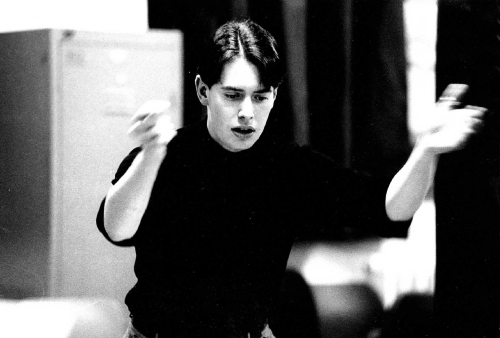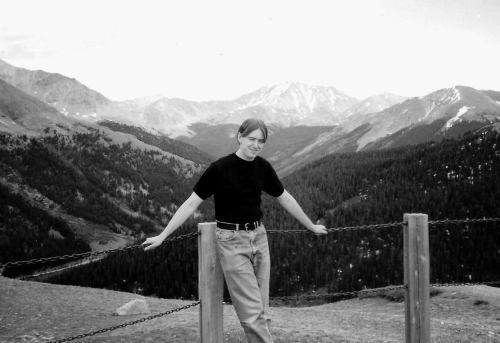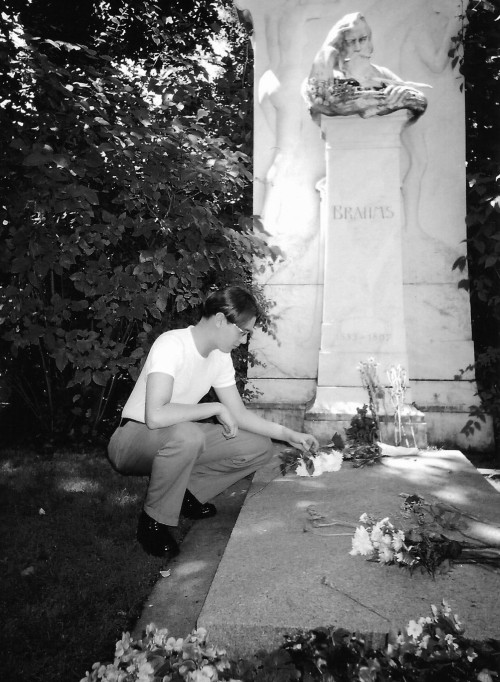While having a background in classical music may seem unusual routes for an entrepreneur and editor, the synergies between musicians and journalists are far stronger than many people appreciate
Twenty-two years ago, I embarked on a journey like no other. I jetted off to America to study at the Aspen Music Festival and School in Colorado.
The trip was off the back of a few promising seasons as an aspiring musician in London since graduating. I was getting regular work as an accompanist and piano teacher, while leading an up-and-coming chamber ensemble. I was convinced that my American venture would kick-start the next stage of my career.
During my first few weeks at Aspen, I played piano, conducted, sang, and even played the triangle to get my name in front of the movers and shakers of the classical music industry. Like many of my peers I was eager — arguably desperate — to succeed. Recognition couldn’t come fast enough.
Like a handful of other places in America, Aspen is a somewhat surreal place. An exclusive sleepy town best known for its skiing and lavish off-piste gatherings during the winter, fast-forward a few months and the resort is taken over by hordes of talented young musicians who typically lodge in million-dollar properties on a shoestring. The dichotomy between luxury and frugality is stark; bartenders used to earning hundreds of dollars a night in tips during ski season typically leave town during the summer for more lucrative gigs.
Similarly, there was usually a clear division between the winners and losers at the school. A few got lucky, convincing the industry’s top agents and promoters they were worth a punt, enabling them to make a living from their passion for music. Most didn’t get a look-in. I was part of the second group.

Highs and lows
While nothing came from my time at Aspen, I still had a jolly good time making new friends and seeing the sublime Rocky Mountains — a long way from the gentle valleys of Wales where I grew up, or the bustling streets of London.
Somewhat ironically, the pinnacle of this adventure was my audition and interview, held in New York City several months earlier. I don’t recall much about my musical performance, but mercifully I passed. I remember more vividly enjoying a drink on the observation deck of the Empire State Building afterwards. Living the American Dream. Or so I thought.
My American adventure was the result of 20 years of blood sweat and tears, sat in front of an infinity of pianos, singing in all sorts of choirs – and playing in various orchestras and bands. And while my bachelor’s and master’s degrees from Kingston University and the University of London were academically orientated, I nonetheless spent the first two decades of my life mostly practicing and performing.
Fast forward to September 1999. I was back from America living at home in Wales — penniless and on the dole. So much for the American Dream.
Looking back now, rather than lament what might have been, I choose to focus on what I learned. Much of it is as relevant to my career today as a writer, as it was as an aspiring musician two decades ago.

Creative synergies
Back then, writing and bar work substituted my musical ambitions. Thankfully, my skills as a communicator soon landed me a sales and marketing job in London with an internet travel start-up, and later as a writer and executive with various publications and agencies. The rest is history.
Until recently, I struggled to appreciate the value of my musical education. It was only years later while living in Asia that I fully understood the positive attributes being a musician brings to all walks of life, including journalism. That’s because the synergies between being a musician and being a writer are strikingly similar. To perform a musical instrument, conduct or sing, people need both sides of their brain. On the left side we process form, structure and technique; and on the right side, we exert creativity and expression, and forge an emotional connection with content and audiences. Writing is no different.
Journalists can learn much from musicians, and vice versa. In music, great composers master form, and the most esteemed of performers cleverly massage this. Similarly, great writers create prose in a way that is easy to follow, with distinctly shaped plots and subplots that conclude memorably. For musicians, every note is of equal standing within a work. For journalists, every word serves the greater good of an article.
Perhaps most significantly, music teaches us about harmony. Not just in terms of musical chords, intervals and so forth. But about collaborating as a group to produce something that is far greater than the sum of individual performers. As journalists, we too are part of a team, and thrive on the skills, views and experiences of others.
One door shuts, another opens
I reapplied to join the programme at Aspen a year later, only to be rejected. While initially devastated, I soon learned another important lesson in that when one door closes, another opens — within weeks I received a letter inviting me to the summer course held at the Vienna Conservatory of Music (Universität für Musik und Darstellende Kunst Wien) in the Austrian capital. The Vienna experience underscored all of the above values and attributes we gain from music, as did a course I attended a year later in 2001 at the Accademia Musicale Chigiana in Siena, Italy.
Interestingly, I haven’t played a note on a piano for more than 10 years, and I likely won’t anytime soon. The bottom line is that while we may struggle to achieve our initial goals and dreams, more often than not, these evolve into careers that are ultimately far more enjoyable and rewarding. While we initially view our careers as a system of skills and tests, it is only when you look back that you realise what you are really building is a rich blend of character, grit and perspective.

As such, my advice to anyone considering an immersion-based activity around sports, music, service or fine arts would be, take the plunge. The journey really is the point of it — regardless of where you end up, the opportunity to see the world and put yourself to the test while doing it. And that’s priceless.
Ultimately, these experiences and skills that we may see as being worthless are typically highly relevant and can deliver a competitive advantage. You’ll make it so.
We are always eager to talk to anyone either setting out on their path, or having arrived at a stage to seal their legacy. What’s your story? Share it with CP5 – and we’ll tell the world.
Cover photo by Bryan Geraldo from Pexels

